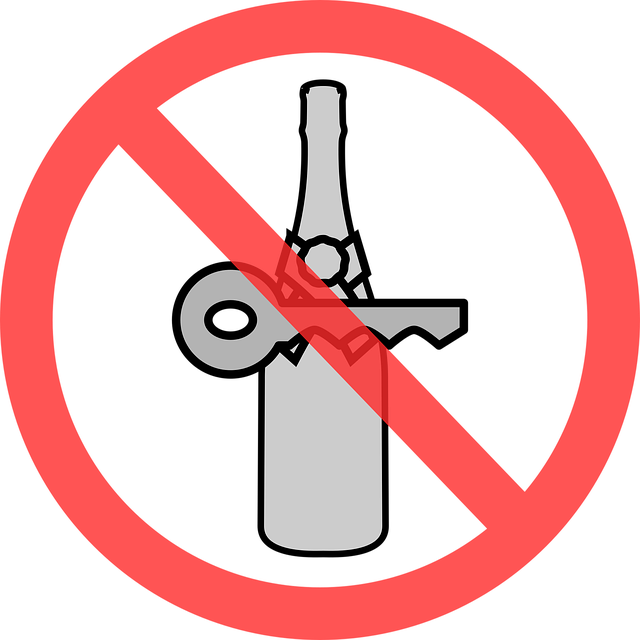Blood Alcohol Level (BAL) testing is a scientific cornerstone in DUI cases, using blood, breath, or urine samples to gauge alcohol concentration against legal limits. However, veterans face unique hurdles due to co-occurring conditions like PTSD and substance use disorders, which can skew BAL results. Specialized legal strategies for veterans meticulously examine testing procedures, addressing potential false positives linked to medical conditions and medications. Peer support groups and legal aid societies provide tailored assistance, ensuring these individuals receive empathetic defense considering their distinct psychological struggles and transition challenges.
“Seeking tailored help for veterans facing DUI charges? Understanding that military service can impact off-duty behavior, this article delves into the nuances of veteran DUI defense. We explore critical aspects such as blood alcohol level (BAL) testing, a key scientific process often central to these cases. Additionally, we uncover unique considerations and challenges faced by veterans, providing insights on how legal strategies can be adapted for better outcomes. Learn about available resources and support specifically designed to assist veterans navigating the complexities of DUI charges.”
- Understanding Blood Alcohol Level Testing: The Scientific Process
- Challenges in Veteran DUI Cases: Unique Considerations
- Tailoring Legal Defense Strategies for Better Outcomes
- Resources and Support for Veterans Facing DUI Charges
Understanding Blood Alcohol Level Testing: The Scientific Process

Blood Alcohol Level (BAL) testing is a critical component in DUI cases, providing scientific evidence to determine if an individual was operating a vehicle while impaired. The process involves taking a sample of blood, breath, or urine to measure the concentration of alcohol present. This is typically done using advanced instruments like breathalyzers for breath samples and blood tests for more precise results. The scientific method ensures accuracy by following strict protocols, including proper collection, handling, and analysis of the specimens.
The testing procedure starts with a qualified technician who follows standardized operating procedures. For example, in a blood test, a medical professional draws a sample from a vein, ensuring sterility and minimizing contamination risks. The sample is then sealed and sent to a laboratory for analysis using gas chromatography or other sophisticated techniques. These methods separate alcohol molecules from other substances, allowing precise measurement of the BAC. The results are interpreted against established legal limits to ascertain if an individual was legally impaired at the time of testing.
Challenges in Veteran DUI Cases: Unique Considerations

Veteran DUI cases present a unique set of challenges that require tailored legal strategies. One significant consideration is the potential for discrepancies in blood alcohol level testing due to medical conditions often experienced by veterans. Conditions such as PTSD, traumatic brain injuries (TBI), or medications they may be taking can affect metabolism and result in false positives or negatives during testing.
Additionally, many veterans face personal and psychological barriers that can impact their ability to navigate the legal system. Post-traumatic stress, substance abuse, and a history of deployment can lead to impaired judgment and decision-making, complicating their response to DUI charges. These unique circumstances demand a comprehensive approach in defense strategies, focusing on both the scientific aspects of blood alcohol testing and addressing the personal struggles faced by veterans.
Tailoring Legal Defense Strategies for Better Outcomes

In crafting a DUI defense strategy for veterans, understanding their unique circumstances is paramount. Many veterans face challenges such as post-traumatic stress disorder (PTSD) or substance use disorders, which can impact their decision-making and behavior. A tailored legal defense acknowledges these complexities. Lawyers specializing in veteran’s DUI cases consider not just the evidence against their client but also their personal history and any mitigating factors. This approach ensures a more empathetic and effective representation, aiming to achieve the best possible outcome for the individual.
One crucial element of this strategy involves meticulous examination of Blood Alcohol Level (BAL) testing. Given the potential for false positives due to medications or underlying health conditions common among veterans, challenging these tests becomes a key defense tactic. Lawyers may employ expert testimony and alternative explanations to cast doubt on the accuracy of BAL readings, ultimately aiming to disprove intoxication beyond a reasonable doubt.
Resources and Support for Veterans Facing DUI Charges

Veterans facing DUI charges require tailored support and resources, especially considering the unique challenges they may face. Many veterans struggle with co-occurring disorders, such as PTSD or depression, which can impact their decision-making and behavior. Additionally, the transition from military to civilian life can be a complex process, and coping mechanisms learned in service may not always align with local laws.
Support systems within the veteran community can be invaluable. Local veterans’ organizations often offer peer support groups where individuals can share experiences and resources. Legal aid societies dedicated to assisting veterans also provide guidance on navigating the legal system, including explaining Blood Alcohol Level (BAL) testing procedures and rights. These initiatives ensure that veterans receive not only tailored defense but also the understanding and compassion they deserve.
Veterans facing DUI charges require specialized legal assistance due to the unique challenges they face. Understanding the scientific process behind Blood Alcohol Level (BAL) testing is crucial, as it can significantly impact the outcome of a case. By tailoring defense strategies to address these specific considerations, veterans have better chances of achieving favorable results. Accessing available resources and support ensures they navigate this complex legal landscape with confidence and receive the tailored help they deserve.






